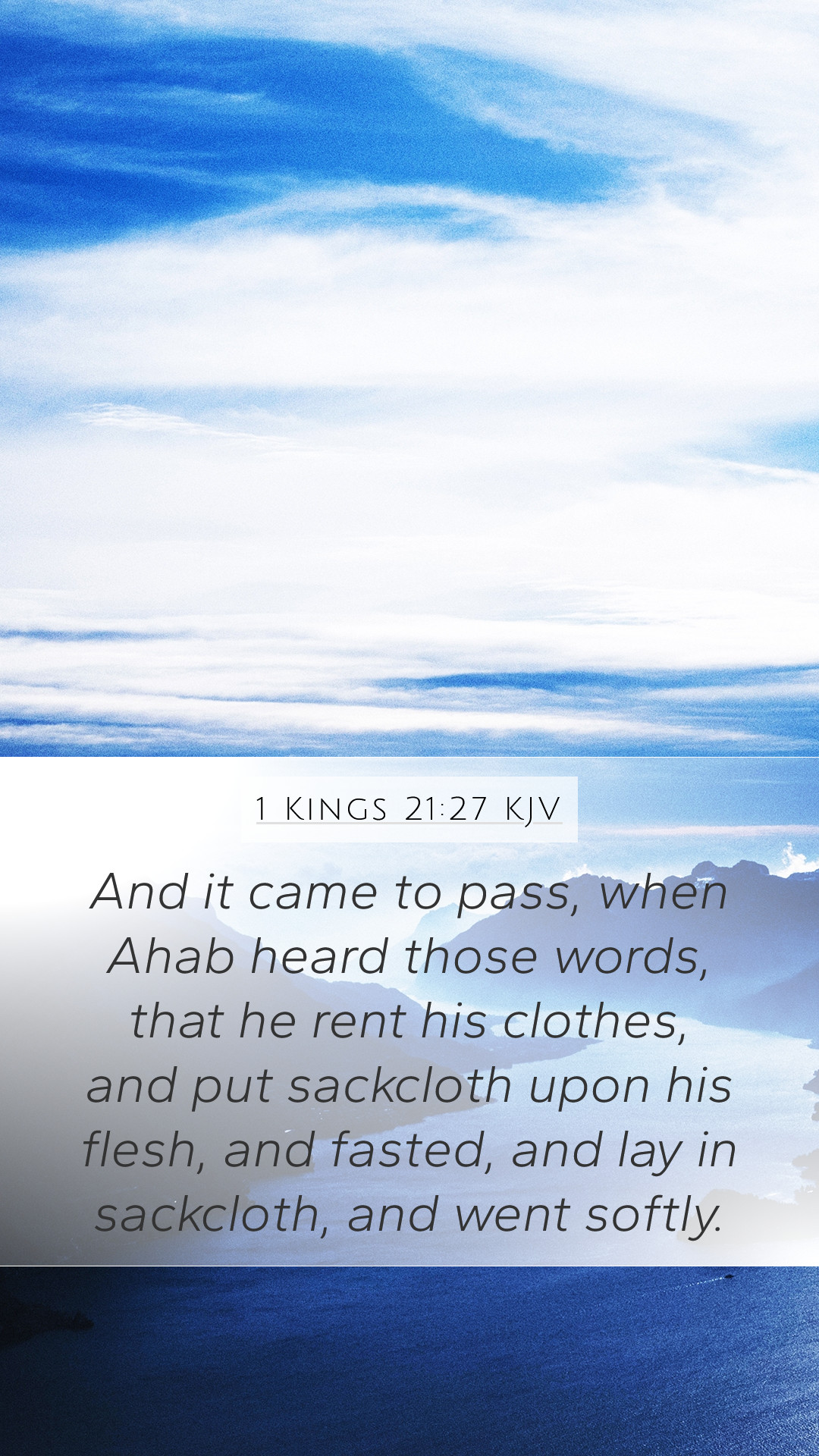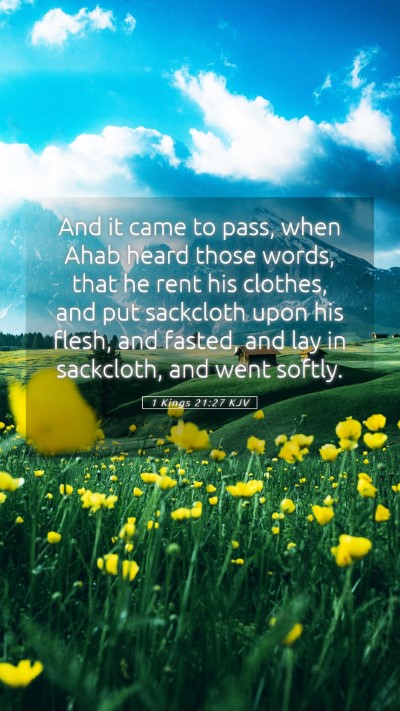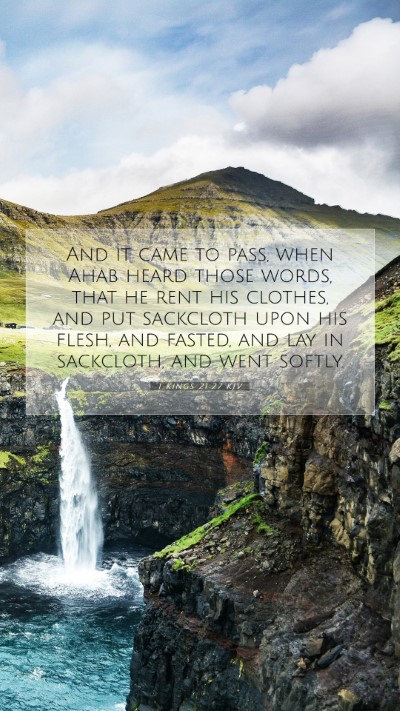Bible Verse Meaning: 1 Kings 21:27
1 Kings 21:27 states, "And it came to pass, when Ahab heard those words, that he rent his clothes, and put sackcloth upon his flesh, and fasted, and lay in sackcloth, and went softly." This passage captures a profound moment of repentance from King Ahab after being confronted by the prophet Elijah regarding his wrongdoing in the matter of Naboth's vineyard. This verse is rich in meaning and significance, revealing layers of emotional response, repentance, and the impact of prophetic admonition.
Understanding the Verse: A Combined Commentary Insight
This passage illustrates the deep remorse and regret that Ahab experienced upon hearing the message of judgment delivered by Elijah. Public domain commentaries provide rich insights into this transformative moment.
- Matthew Henry's Commentary:
Henry emphasizes Ahab's immediate reaction upon receiving the prophecy of his impending doom. It reflects a significant emotional upheaval. The act of tearing his clothes and donning sackcloth symbolizes mourning, penitence, and a recognition of his sinfulness. Ahab's fast represents a desperate plea for mercy, illustrating that even kings can be humbled.
- Albert Barnes' Notes:
Barnes notes that Ahab had committed egregious sins against God, including the murder of Naboth. His response, characterized by fasting and mourning, indicates a sincere heart of repentance, demonstrating that divine grace can reach even the most wayward. Additionally, this illustrates a poignant contrast between Ahab's previous arrogance and his newfound humility.
- Adam Clarke's Commentary:
Clarke provides an analysis of the cultural significance of sackcloth and fasting in Israelite society. Sackcloth was well-known as a garment of mourning and humility before God, often employed during times of national crisis or personal sin. Ahab’s actions here indicate a recognition of the gravity of his sins and an urgent desire to seek God’s mercy.
Theological Implications
The theological implications in 1 Kings 21:27 suggest God's willingness to respond to sincere repentance, showcasing His mercy even toward those who have committed profound injustices. Ahab, a king who had strayed far from God's commandments, highlights the possibility of redemption through humility and genuine contrition.
Application in Contemporary Life
For contemporary readers seeking Bible verse meanings, this verse serves as a reminder that true repentance involves recognizing one's faults, expressing remorse, and seeking forgiveness. The act of humbling oneself before God is crucial in our spiritual journey.
Lessons from Ahab’s Repentance
- Even those in positions of power must confront their sins.
- Genuine repentance is marked by observable actions such as fasting and mourning.
- God responds to open and honest contrition, regardless of one’s past.
- Humility can lead to a restorative relationship with God.
Cross References
- 2 Chronicles 34:27: A parallel in the sense of national repentance.
- Isaiah 58:5: The significance of genuine fasting as a sign of penitence.
- Joel 2:12-13: God's call to return to Him with fasting and mourning.
Conclusion
1 Kings 21:27 encapsulates a compelling narrative of repentance and divine mercy. By understanding this passage through a combination of scriptural commentary, we gain deeper insight into the significance of Ahab's actions and their implications for our spiritual lives today. Engaging with this verse offers not only a reflective moment on the nature of sin and repentance but also provides valuable lessons on humility before God.
For those seeking Bible study insights, consider this scripture as a point of meditation and discussion in Bible study groups or during online Bible study. It serves as an excellent topic for Bible study lessons focusing on repentance and the character of God.


